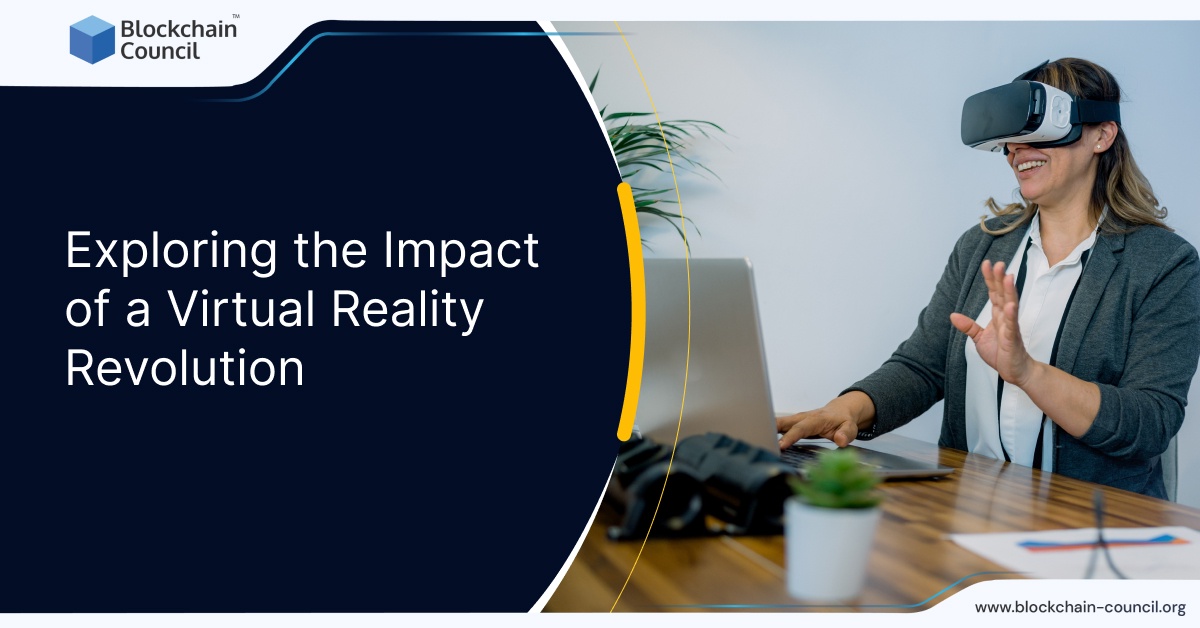Consider an online space in which billions of people live, work, shop, study, and communicate with one another from the comfort of their physical sofas. The metaverse notion has captured the minds of both technologists and the general people. Metaverse Technology, which was first popularised in science fiction literature, is a virtual reality-based environment in which people may engage in a variety of activities, connect with others, and create new experiences. As technology advances and the metaverse becomes a practical reality, it is critical to investigate the possible influence and difference it may have in all facets of our life.
Some of the innovations that enable entry to this virtual world, including virtual reality (VR) headsets and augmented reality (AR) glasses, are rapidly evolving; however, other critical components of the metaverse, such as adequate bandwidth or interoperability standards, are likely to take years or never materialize.
The notion is not new: author Neal Stephenson created the word metaverse in his sci-fi novel Snow Crash in 1992, and the development of the technology that supports a virtual reality-based internet dates back decades.
In this article, we will look at some of the important areas where the metaverse has a chance to change the way we live, work, and socialize.
Education and Learning
One area where the metaverse may actually make an impact is education. Traditional education institutions frequently struggle to engage students and provide deep and interactive learning experiences. The metaverse has the ability to alter the educational landscape by enabling students to connect with one another and their professors in a dynamic and engaging setting. Virtual reality simulations may bring historical events to life, allow for immersive scientific research, and allow students to understand complicated topics in a tangible way. The metaverse has the potential to cross geographical barriers, making education accessible to persons in remote locations and democratizing learning possibilities for all.
Work and Collaboration
Metaverse training has the potential to change the way we work and cooperate. Remote employment has grown in popularity in recent years, and the COVID-19 epidemic has further increased this tendency. However, remote work typically lacks the social connection and collaborative setting of a real workplace. Individuals may cooperate, discuss, and communicate with colleagues as if they were physically thereby establishing virtual workplaces within the metaverse. Virtual conferences, meetings, and presentations may be done with real-time interactions, increasing productivity and decreasing the need for considerable travel. The metaverse can blur the lines between work and home life, allowing for freedom while preserving social relationships.
Entertainment and Recreation
The entertainment business has always been fast to adopt technical advances, and the metaverse is no exception. It has the ability to change leisure and recreation experiences in new ways. Consider attending a virtual performance where you can engage with the artist and other fans, or entering into a completely immersive video game where you physically feel the virtual environment. The metaverse has endless potential for immersive narrative, virtual tourism, and social gaming experiences. Furthermore, virtual reality-based fitness and sports applications can encourage physical activity and well-being by making workouts more interesting and pleasurable.
Healthcare and Therapy
Metaverse technology also holds great promise in the field of healthcare. Virtual reality-based therapies have already shown effectiveness in treating a range of mental health conditions such as anxiety disorders and phobias. The metaverse can provide a safe and controlled environment for exposure therapy, allowing individuals to confront and overcome their fears in a virtual setting. Moreover, telemedicine can be greatly enhanced through the metaverse, enabling remote consultations and surgeries through immersive experiences. Virtual reality can also aid in pain management, rehabilitation, and training for medical professionals.
Social Connections and Inclusivity
One of the most impactful aspects of the metaverse lies in its potential to bring people together and foster social connections. Virtual reality environments can provide a sense of presence and immersion, enabling individuals to interact with others from around the world. This has the potential to break down barriers of distance, language, and physical limitations. Metaverse technology can also provide a platform for marginalized communities to express themselves, find support, and create inclusive spaces. By harnessing the power of virtual reality, the metaverse can create a sense of belonging and bridge societal divides.
How will the metaverse affect the future?
It is important to remember that the metaverse is still a set of possibilities, not a reality. There are several unknowns. It is unclear how the metaverse will appear – who will govern it, what it will include, and how much of an influence it will have on our lives. On one end of the scale, some believe the metaverse would improve our lives by allowing us to have experiences we would not be able to have in the actual world. Others have seen the metaverse as just an extension of today's digital experiences, rather than a transformational experience, and as possibly worse: an amplifier of present social media evils such as misinformation campaigns, addictive behavior, and violent inclinations.
Pew Research Centre polled 624 technological innovators, business executives, and activists on the effect of the metaverse by 2040 in a 2022 study conducted in collaboration with Elon University's Imagining the Internet Centre. The answer was divided. According to the survey, 54% of these experts believe the metaverse will be a fully immersive, functional component of everyday life for at least a half-billion people worldwide, while 46% believe it will not.
Similarly, according to a recent Accenture poll of 4,600 business and technology professionals, 71% feel the metaverse will have a beneficial influence on their organization, but just 42% believe it will be a breakthrough or revolutionary development.
Conclusion
The metaverse represents a paradigm change in our perception of and interaction with digital worlds. Its potential influence ranges from education and employment to entertainment and healthcare. We can open up new avenues for learning, cooperation, and social interaction by embracing the metaverse. To guarantee that the metaverse benefits everyone, issues about privacy, security, and equal access must be addressed. As technology advances, it is critical to recognize the metaverse's potential for beneficial change while also considering its ethical consequences. The metaverse's future promises tremendous possibilities, and it is up to us to mold it in a way that actually impacts our lives.
If you want to delve deeper into the metaverse and planning to pursue a career in the domain, then check out Blockchain Council’s website for the available Metaverse certification programs.


No comments yet